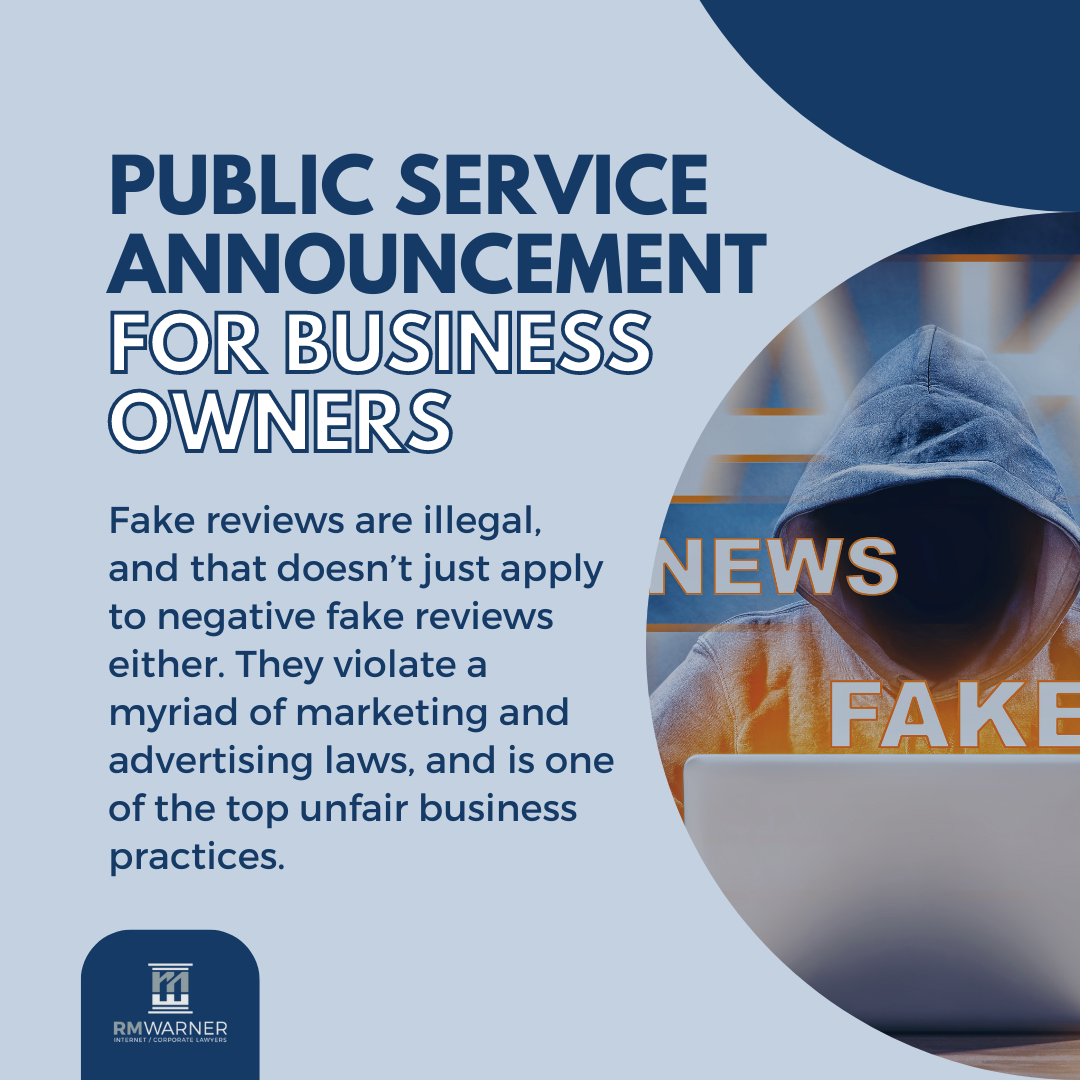How To Identify Fake Reviews Online – Fake Reviews on Amazon and Yelp Are On The Rise
How To Identify Fake Reviews Online – Fake Reviews on Amazon and Yelp Are On The Rise

 In the age of the internet, online reviews are one of the most important – if not the most important – factors when gaining new customers and retaining the old. However, online reviews don’t just affect e-commerce ventures! Thanks to websites like RipOff Report, Yelp and TripAdvisor, brick-and-mortar businesses can be put on blast just as easily now.
In the age of the internet, online reviews are one of the most important – if not the most important – factors when gaining new customers and retaining the old. However, online reviews don’t just affect e-commerce ventures! Thanks to websites like RipOff Report, Yelp and TripAdvisor, brick-and-mortar businesses can be put on blast just as easily now.
That being said, it’s also made it easier than ever for competitors to sabotage each other by posting fake reviews. Fake reviews on Amazon and fake reviews on Google, for example, are things that happen daily. Beware, though, fake reviews can be positive too! Businesses can leave themselves fake positive reviews in order to boost their online reputation and outrank competitors. [SEE: Amazon Search Ranking Scams: The Black [Hat] Market]
These deceptive tactics can leave customers unsure who to trust, and business owners at a loss financially. In order to weed out scammers and unfair competition, how can consumers and business owners identify fake reviews?
Who Writes Fake Reviews?
First, let’s go over who’s writing fake reviews online so we can better understand the motive and how to identify them.
- Customers getting a kickback
- Competitors
- Professional PR people/ Marketing Teams
- Content Writers
Characteristics of a Fake Review:
No Previous Reviews
If the reviewer has no other reviews, it’s a red flag. Although it could simply be their first time posting, the reviewer could have ulterior motives. They may be posting the review to boost their own product/business or to sabotage the competition. Profiles with more than one review for multiple different companies are more likely to be leaving reviews as a way to help other consumers. You might be able to see how long a user has been leaving reviews by looking for the date their profile was created. However, that still may lack the insight needed for you to determine the reviewer’s trustworthiness.
Short or Vague Reviews
A lack of reliable detail is another red flag. Say you’re looking at a review for a pair of sandals on Amazon. You see one with five-stars that says, “very comfortable” with no other details. Habitual reviewers love to explain why their new shoes are comfortable. Was it the sole? Was it made with lightweight material? Was it easy to walk in over a long period of time? Did they need to be broken in? Reviews that lack key details explaining their experience with the shoes, why they bought the shoes or who they bought them for and why they rate them five stars is one way to identify a fake review.
Overly Passionate Reviews
On the other hand, reviews that contain too much passion have the potential to be fake. Look and see if the review contains more verbs than nouns. Fake negative reviews intending to ruin the reputation of the competition use terms like “total fraud” and “Don’t buy from this seller! They will scam you!” Overuse of exclamation points also could be a tell for reviewers intending to portray their anger towards a product- “portray” being the key word.
Self-Referential Reviews
Phoney reviewers may reference themselves more as a way to overcompensate for their lack of sincerity. A study conducted by Cornell University found that fake reviews tend to include the personal pronouns “I” and “we” more so than real reviews do.
Reviews Containing a Superior Alternative
This one might be the biggest red flag of them all! Reviews that attack a product by calling it “a scam” or “a waste of money” and then provide a similar product that the reviewer claims to be a much better option is likely paid or fake. This is especially true if they provide a link to the competing product too.
How Do Reviewers Get Away With Posting Fake Reviews?
Are fake reviews illegal? Technically, yes, they are. The Federal Trade Commission has a zero tolerance policy when it comes to fake reviews! Cited as one of the clearest examples of an unfair business practice, the FTC specifically classifies fake reviews as “unfair and deceptive marketing”.
Attorney Raees Mohamed offers a few words of caution: “False and defamatory reviews are on the rise, particularly for professionals like dentists, doctors, and lawyers. I have seen a significant rise in the number of complaints regarding false and defamatory reviews on Facebook pages and Yelp. Whether it stems from differing political viewpoints or because the patient didn’t like the experience but has no real issue to complain about, fake reviews are popping up for any and all reasons. For example, a patient may write a review that states they were scammed out of their money by a dentist, or that a doctor committed malpractice, when the real issue is that a procedure simply took more time to heal than what the patient expected. Reviewers should be very cautious of writing a review that is false and fabricated. There could be significant liability for writing a defamatory review.”
How to Remove Fake Reviews and How to Report Unfair Business Practices
Fake reviews online may not always get reported, so it’s important to know the characteristics of a fake review! However, if you’re still not sure who to trust, or you’ve been plagued with fake reviews, RM Warner Law is here to help! Our attorneys are well-versed in advertising law, defamation law, and e-commerce law, so get in touch today.
Similar like this
You also might be interested in
Why Hiring an Internet Defamation Lawyer Could Be the Right Move
These days, many of us live part of our lives [...]
Can You Sue an Anonymous Author for Libel? What You Need to Know
The internet makes it easy for anyone to post content [...]
What Does an Internet Law Firm Do? How We Protect Your Online Reputation and Business
How RM Warner Protects Your Online Reputation and Business Navigating [...]
Instagram’s Terms of Service: What You’re Really Agreeing To
Are you guilty of clicking "I Agree" to the terms [...]





